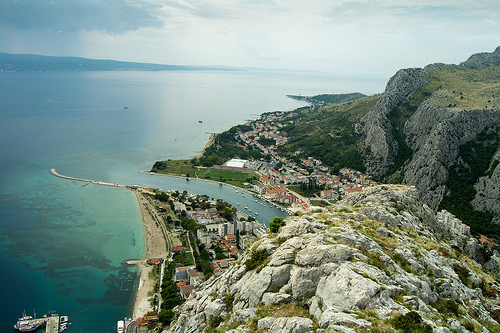Croatia, one of Europe’s youngest nations, has been attracting foreigners from all over the world since the end of the Balkan war. Also known as “The New Tuscany”, this picturesque region is now home to many expats. Some choose to give birth in Croatia, instead of traveling back to their home countries during pregnancy. The experience is almost the same as it is in most other East European countries, with a few minor differences.Below are a few aspects for all expats to consider carefully before deciding to have a baby in Croatia.
The type and location of birth
Midway through a pregnancy, mothers-to-be need to decide what kind of birth they would like to opt for. Unlike in the US and UK, women do not have much control over birthing matters in Croatia. Most doctors do not even give them the chance to decide if they want a natural birth or a C-section, or whether or not they want an epidural.
In Croatia, 99% of the births take place in one of the 30 maternity hospitals. All these facilities are supported by UNICEF and have been recognized as “baby friendly” hospitals. Apart from these maternity hospitals, there are no certified birthing centers and the practice of giving birth at home is very rare in this country.
There is a private maternity clinic in Zagreb, which is preferred by most expats as it offers water births and other similar options in addition to normal birthing. However, this facility gets crowded very quickly and can be quite expensive. For more information, take a look at www.podobnik.hr/en/vijesti/
Hiring a midwife
Less than 10% of Croatian midwives have completed a university degree in midwifery; the vast majority of them only have secondary school education. Therefore, almost all the midwives in Croatia only work in maternity hospitals, where they assist doctors. They are neither licensed to provide antenatal care nor run their own independent practices. A midwife should never be hired for private birthing at home as it is against the law.
Antenatal care
All pregnant women living in Croatia can opt for free antenatal care, regardless of their residence status. This service is provided by primary gynecologists at state-run hospitals. Private antenatal care comes at a premium cost. The average number of antenatal visits during pregnancy in Croatia is 7, which is slightly lower than the US and the UK.
Most couples in Croatia do not attend any kind of prenatal or Lamaze classes. There is a course in Split available for fathers-to-be who want to be present for some part of the delivery.
Presence of the father
In the US and UK, it is a very common sight to see the fathers in the delivery room throughout the birthing process. Most of them also stay at the hospital with their partners after the baby is born. However, these practices are not the norm in Croatian state hospitals.
Delivery rooms offer little privacy and often have a couple of women giving birth at the same time. Therefore, fathers are rarely allowed to be present during childbirth. They are also not allowed to stay in the hospital unless the woman opts for an expensive private room.
Newborn care
Unlike most Western countries, in Croatia newborn babies are kept with their mothers all the time. This practice is followed in all private and state-run hospitals, mainly so the mothers can nurse their babies as and when required. The use of a bottle for newborns is strongly discouraged by Croatian medical staff.
At almost all of the state-run hospitals, visitors are not allowed to have any direct contact with the newborn. Even close relatives can only see the baby through a glass window; no one is permitted to visit the mother’s room.
Duration of hospital stay
Hospitals in the US and UK allow mothers to go home around two days after a normal delivery, as long as there are no complications. However, in Croatia mothers are often kept for around five days or so after childbirth, even under normal circumstances.
Private medical care in Croatia is very expensive and the duration of hospital stay is also fairly long. Many insurance companies in the US and UK do not cover childbirth in a foreign country. It is therefore essential for prospective parents to get their insurance in place before planning a pregnancy.

